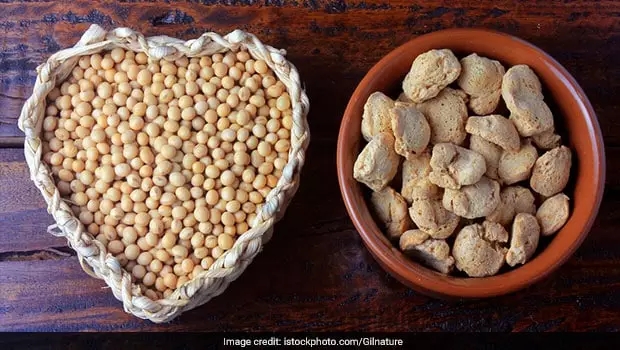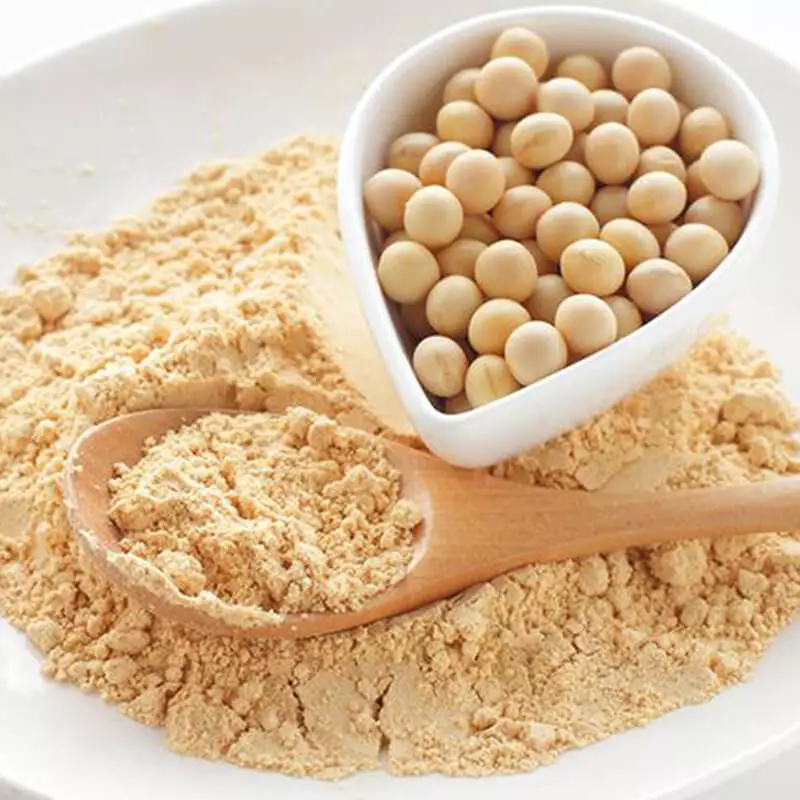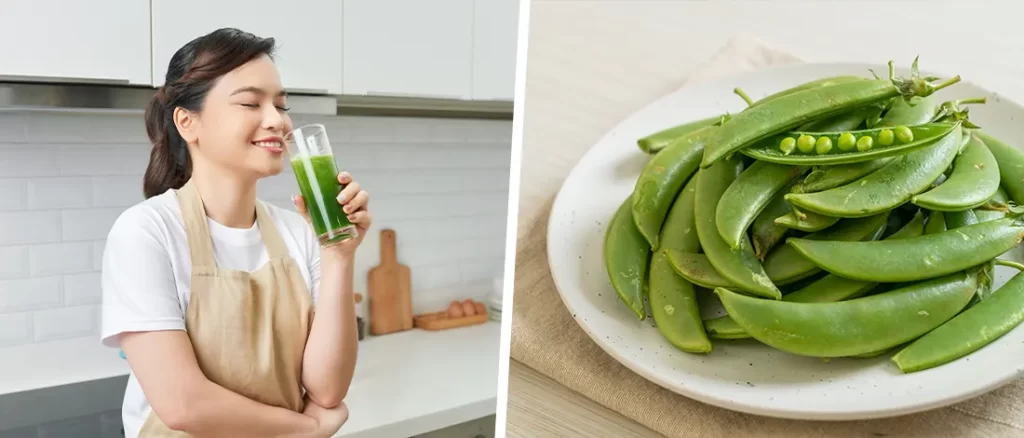Should you eat pea or soy protein? Both pea and soy proteins contain different macronutrients to help optimize body composition. Pea protein consists of 24g of protein, whereas soy protein includes 26g.
Table of Contents
On the other hand, both are low in fat and carbohydrates. The only difference is that pea protein has more amino acids per serving with improved performance than soy protein. Despite the negligible differences, pea and soy protein isolates are great nutrients in your daily diet.
What is pea protein?
It is a superior, naturally vegan, and hypoallergenic protein. It is also a great source of iron and has been found to support weight management, muscle growth, and heart health improvement.
Some brands of pea protein powder have different nutrition facts. Two scoops or 20 grams of powder may have:
80 Calories
Protein: 15g Total Fat: 1.5g
Carbs: 1g Sodium: 230mg
Fibre: 1g Iron: 5mg
What is soy protein?
Soy protein is a complete protein containing all 9 amino acids shown to support healthy growth in children and infants. One of the best sources of plant-based proteins is soy protein.
In addition to this, it is also low in fat and free of saturated fat and cholesterol. One ounce, approximately 28 grams of protein isolate powder, contains:
95 Calories
Fat- 1g Iron: 25% of the Daily Value (DV)
Carbs- 2g Phosphorus: 22% of the DV
Fibre- 1.6g Copper: 22% of the DV
Protein: 23g Manganese: 22% of the DV
Does Pea Protein Make You Gain Weight?
Most people have turned themselves into vegans, and with this, the popularity of pea protein has also increased widely. Most interestingly, it has become one of the most demanded products today, especially for physically active people.
Does pea protein make you gain weight? Well, the answer is “yes and no.” It makes you gain weight if you regularly consume a calorie surplus. But you won’t gain weight if you maintain your calories or are in a calorie deficit regularly. It only adds whole protein to your diet and ensures you get enough protein daily.
The protein you consume will not decide whether you will gain or lose. It largely depends on the number of calories you consume every day. You need to increase your calorie intake to get the desired results to gain weight.
One important thing to consider is that you need to consume good calories when looking to gain weight.
Does pea protein contain estrogen?
It is free of estrogen and oestrogen. Phytoestrogens are present, albeit in minimal concentrations, as in most other foods on the market. As a result, there is no hormonal imbalance in the body.
Is pea protein inflammatory?
If you are prone to gout, you must avoid consuming it as it contains purines that break down to uric acid, leading to inflammation or pain.
How is pea protein made?
It is made by extracting protein from yellow peas. After cleaning and dehulling, the protein is separated from the carbohydrate, creating either a protein isolate or a protein concentrate.
Why is pea protein popular?
Pea Protein is perfect for vegan, non-GMO, gluten-free, and hypoallergenic diets. It contains all 9 essential amino acids your body can’t make alone.
How does pea protein compare?
Pea protein is identical to whey when comparing calories, carbs, protein, and fat. It even contains branched-chain amino acids (BCAAs) and 3 times the amount of arginine, which aids in forming muscles.
Why is pea protein healthy?
Pea protein has been found to build muscle mass as effectively as whey protein. It also keeps you full and improves your cardiovascular health.
In addition to this, it also helps in:
- Lower high blood pressure
- Easily digestible
- A natural remedy for chronic kidney disease
- It is highly suitable for vegans.
- It is ideal for vegetarians.
- It is a non-GMO form of protein.
- It is free of common allergens.
Is pea protein good for muscle building?
Pea protein can be a good source of muscle growth if paired with resistance training. In such cases, consuming enough protein is also essential to build muscle out of protein. Studies have shown that if you add exercise with pea protein, it can aid in muscle growth as well as increase muscle strength.
You can consume pea protein within 2 hours of strength-resistance exercise to achieve the best results. Furthermore, pea protein comprises all the essential amino acids that aid in muscle protein synthesis.
Pea protein dangers
Much like health benefits, pea protein also has some negative impacts. It includes:
- It can cause inflammation or pain in the body.
- Too much protein consumption can harm the body.
- Low-cost protein powder contains cheap additives and other chemicals.

The Benefits of Soy Protein
Soy is a high-quality protein with a variety of health benefits. It is the only widely available plant source of protein that is considered a complete protein and is comparable in protein quality to milk, eggs, and other animal proteins.
Now, let’s look at the below-mentioned points to get a better idea of it:
- 10 to 14% of infants are allergic to cow’s milk.
- All formulas, including soy formulas, are fortified with vitamins and minerals essential to a child’s growth and development.
- As a part of a calorie-controlled diet, Soy protein can aid in weight management by helping you feel fuller for longer.
- Including soy in a post-workout recovery routine can help build and maintain muscle mass.
- Soy protein meets the amino acid needs of children.
- As part of a diet low in saturated fat and cholesterol, soy protein can decrease LDL and total cholesterol levels, reducing the risk of heart disease.
- Soy fibre can help meet the daily fibre needs of aged adults.
What’s wrong with soy protein?
Soy might not suit a few people as it leads to digestive upsets, constipation, or diarrhoea. It might also alter thyroid function for people who lack iodine.
Other disadvantages of soy protein include:
- It may prevent protein from being digested.
- It could cause gas in the stomach.
- It contains goitrogens.
- It can cause mineral deficiencies.
- It could cause chronic inflammation.
- It may be carcinogenic.
On the good side, soy protein is suggested for women battling breast cancer or who are at risk for breast cancer.
Is pea protein a complete protein?
Pea protein is a complete protein containing all 9 essential amino acids, like soy protein. If you are allergic or sensitive to soy, you can easily choose pea protein as an alternative protein choice in your diet.
Furthermore, pea proteins are low in methionine, which means they cannot be used as a significant source of protein throughout the day.
Can You Build Muscle with Soy Protein?
Soy protein is a complete source of protein and aids in muscle growth and muscle strengthening to a significant level. It’s also possible to avoid soy and uses pea protein instead.
How much is soy protein per day safe?
Clinical studies have shown that consuming up to 50 grams of soy protein daily is safe. It has numerous health benefits, including controlling diabetes and combating cancer and cardiovascular disease.
What Are the Best Times to Take Pea Protein?
- For weight loss- It is best consumed between meals.
- For Muscle Building- It is best consumed up to two hours post-workout.
- Preserving Muscles are best consumed throughout the day in balanced servings.
- For Aiding Recovery- It is best consumed immediately before or after a workout.
Conclusion
Whether you choose pea or soy protein depends on your health condition. Both proteins have similar features to take into consideration.
However, if you are allergic or sensitive to soy, you can avoid it altogether. In such cases, if you are not allergic to peas, you can grab them. After all, pea protein contains rich nutrients that aid in improving health conditions.










